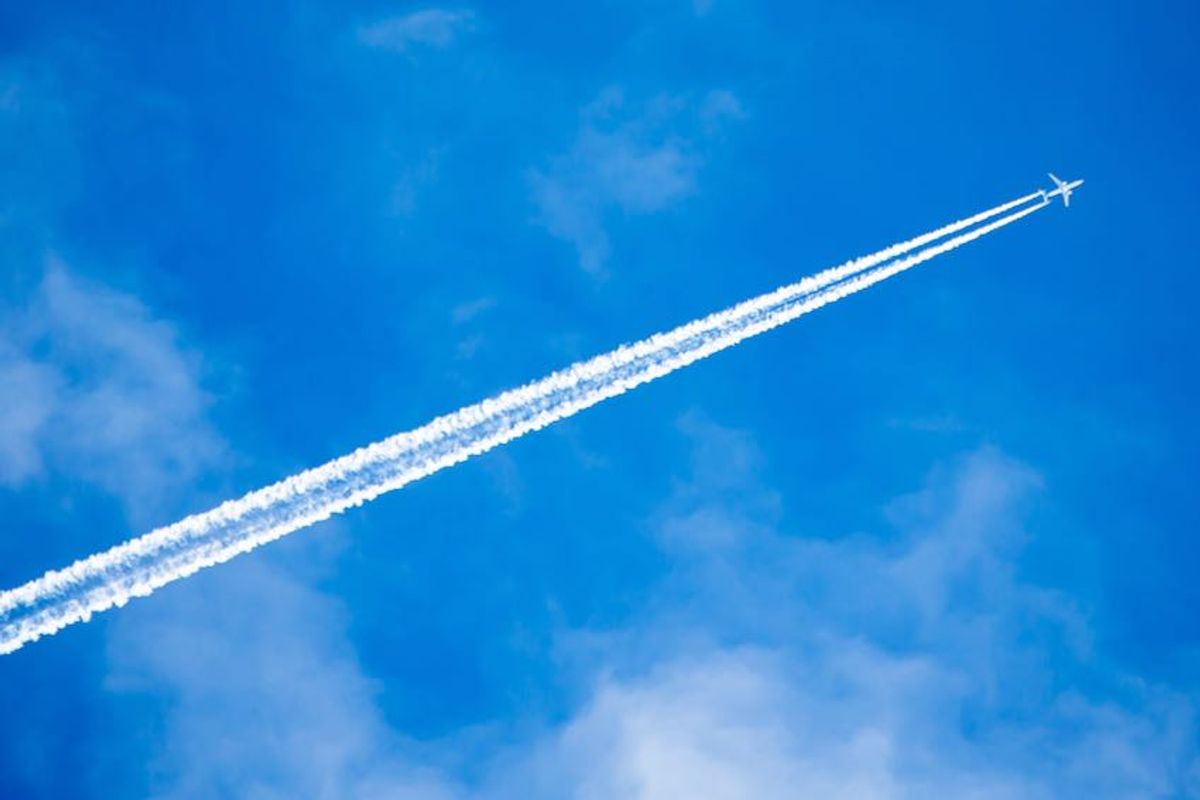The European Commission and EU consumer protection authorities have contacted 20 airlines regarding potentially misleading environmental claims, the EU announced this week.
The action follows concerns raised by European consumer organisation BEUC and is led by watchdogs in Belgium, the Netherlands, Norway and Spain, but the 20 airlines were not identified in a statement published earlier this week.
The investigation is focusing on “claims made by the airlines that the CO2 emissions caused by a flight could be offset by climate projects or through the use of sustainable fuels, to which the consumers could contribute by paying additional fees.”
EU authorities are concerned that the claims could be considered as “misleading actions/omissions” under the Unfair Commercial Practices Directive. The airlines are “yet to clarify whether such claims can be substantiated based on sound scientific evidence”.
The 20 carriers concerned have been invited to provide a response within 30 days outlining their proposed measures to address the concerns. The authorities will debate and oversee the implementation of agreed solutions and, if the necessary steps are not completed, further action, including sanctions, could be taken.
A statement from the BEUC welcomed the action, which it said was a direct result of the complaint it lodged in June 2023 concerning 17 airlines: Air Baltic, Air Dolomiti, Air France, Austrian, Brussels Airlines, Eurowings, Finnair, KLM, Lufthansa, Norwegian, Ryanair, SAS, SWISS, TAP, Volotea, Vueling and Wizz Air.
The European Commission’s vice president for values and transparency, Věra Jourová, said: “If we want responsible consumers, we need to provide them with accurate information. More and more travellers care about their environmental footprint and choose products and services with better environmental performance. They deserve accurate and scientific answers, not vague or false claims.”
She added: “The Commission is fully committed to empowering consumers in the green transition and fighting greenwashing. We expect airlines, as well as any other industry operator, to make a responsible use of environmental claims.”
Monique Goyens, BEUC’s director general, said: “It is great news that authorities from across Europe acknowledge consumers have been fooled by airlines’ greenwashing. It is unacceptable that airlines have freely lured consumers into offsetting their flight’s emissions, sometimes at a high price.”
Doyens added: “The fact that European consumer protection authorities are calling on airlines to get their act together shows there’s a wind of change. Greenwashing is no longer acceptable, and the fact that aviation is one of the most highly polluting sectors makes it even more intolerable. Today’s crack down on greenwashing is encouraging at a time when consumers are expected to shift to more sustainable lifestyles.”
Responding to the action, Airlines for Europe (A4E) – whose 17 members include Air France-KLM, the Lufthansa Group, Norwegian, Ryanair and TAP – said it recognises the importance of clear, transparent information about sustainability but that current regulations pertaining to communications on the subject “vary significantly between countries and are still evolving.”
A statement issued by A4E continued: “We are particularly concerned about the remarks on sustainable aviation fuels and the requirement for a clear justification of their environmental impact. The EU has implemented an ambitious SAF mandate, supported and endorsed by the European Commission, and the science supports that this is a more sustainable alternative to regular jet fuel.”
The organisation said it is engaged in discussions with EU bodies to develop a common methodology for airlines to effectively communicate their sustainability efforts and progress.
In a separate greenwashing development, a Dutch court ruled in March that KLM misled customers in what was heralded as a ‘landmark’ case. A complaint concerning misleading claims about its sustainability actions in a past advertising campaign by the airline had been filed by environmental organisations Fossielvrij and ClientEarth.
Greenwashing: what the EU has identified
The European Commission and EU consumer authorities have identified several types of potentially misleading practices by the 20 airlines they are taking action against. These include:
• Creating the incorrect impression that paying an additional fee to finance climate projects with less environmental impact or to support the use of alternative aviation fuels can reduce or fully counterbalance the CO2 emissions;
• Using the term “sustainable aviation fuels” (SAF) without clearly justifying the environmental impact of such fuels;
• Using the terms “green”, “sustainable” or “responsible” in an absolute way or the use of other implicit green claims;
• Claiming that the airline is moving towards net-zero greenhouse gas emissions (GHG) or any future environmental performance, without clear and verifiable commitments, targets and an independent monitoring system;
• Presenting consumers with a “calculator” for the CO2 emissions of a specific flight, without providing sufficient scientific proof on whether such calculation is reliable and without the information on the elements used for such calculation;
• Presenting consumers with a comparison of flights regarding their CO2 emissions, without providing sufficient and accurate information on the elements the comparison is based on.

